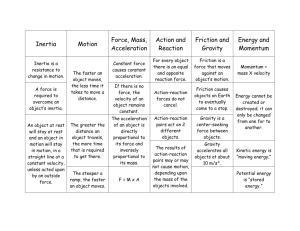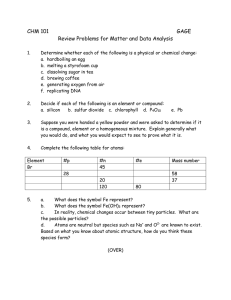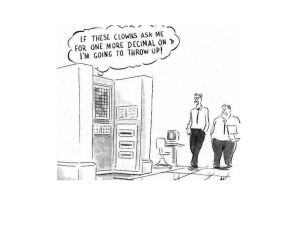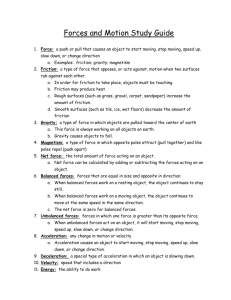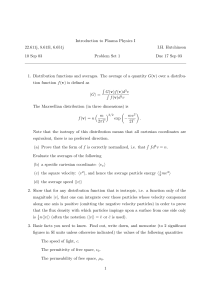Forces and Motion
advertisement
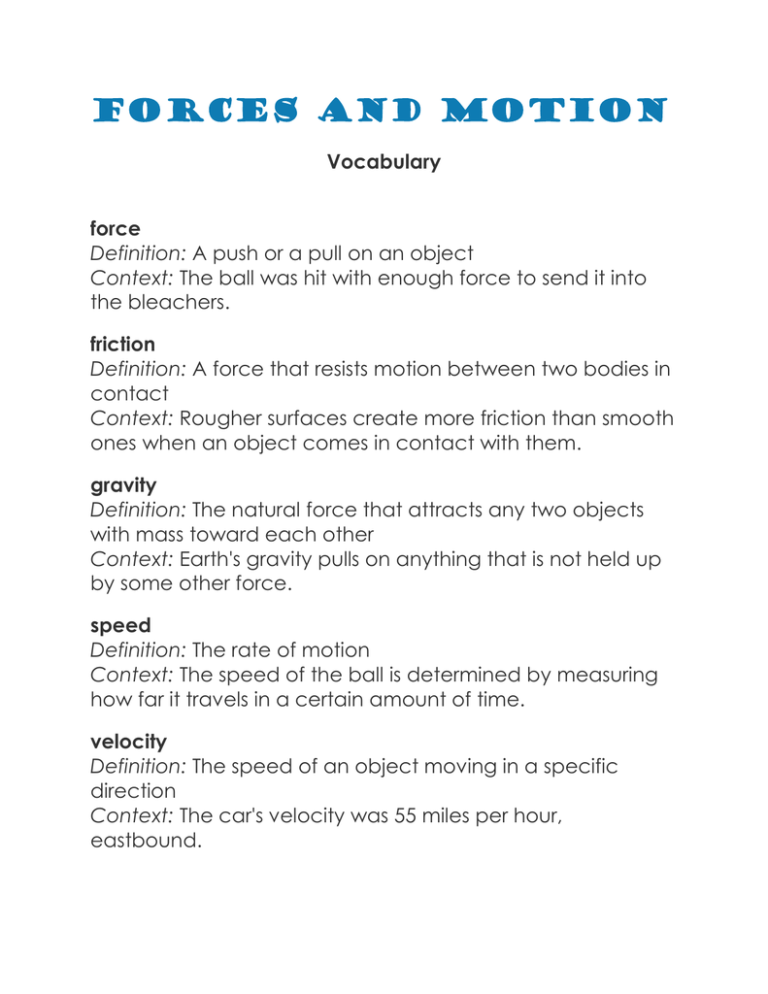
Forces and Motion Vocabulary force Definition: A push or a pull on an object Context: The ball was hit with enough force to send it into the bleachers. friction Definition: A force that resists motion between two bodies in contact Context: Rougher surfaces create more friction than smooth ones when an object comes in contact with them. gravity Definition: The natural force that attracts any two objects with mass toward each other Context: Earth's gravity pulls on anything that is not held up by some other force. speed Definition: The rate of motion Context: The speed of the ball is determined by measuring how far it travels in a certain amount of time. velocity Definition: The speed of an object moving in a specific direction Context: The car's velocity was 55 miles per hour, eastbound. acceleration Definition: The rate of which an object changes it velocity Context: Acceleration can be positive or negative depending on whether the object is speeding up or slowing down. Inertia Definition: The ability of an object to remain in motion or remain at rest unless acted upon by an outside force ENERGY TERMS Energy- the ability to do work Potential- stored energy that has the ability to do future work Kinetic-energy of motion FORMS of ENERGY “CLEMNT” Chemical- stored in particles that make up food and other fuels Light-the sun is the major source of light energy. Light energy converts to chemical energy and electrical energy Electrical- the movement of charged particles, batteries and power of plants that burn fuel. This energy travels through our homes through wires and cables Mechanical- moving objects have this energy. This energy is the sum of potential and kinetic. Turning on a toy is a good example Nuclear- energy that comes from tiny particles that come together to create huge amounts of energy Thermal- motion of tiny particles. This comes in the form of stoves, heaters and matches. The faster the particles move the warmer the substance gets. CONCEPTS to THINK ABOUT How can you tell that something has moved? You can compare the object’s new position to its original position What is speed? The distance an object moves in a certain amount of time. How can a force affect motion? A force can start or stop motion. A force can change the direction of motion. How does inertia affect motion? Inertia keeps moving objects in motion What makes motion change? A push or pull; forces What forces act on motion? Gravity, friction
